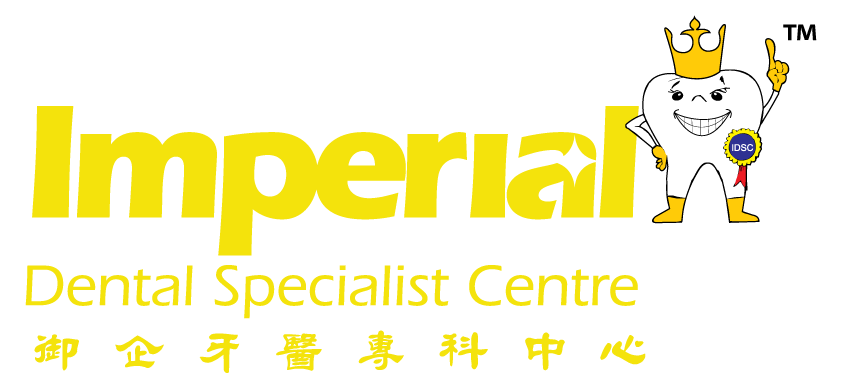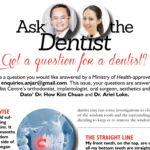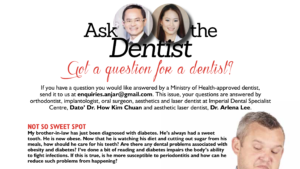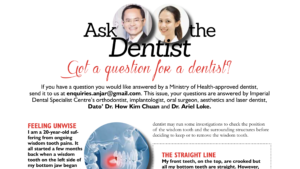Lifting the Sinuses
Dato’ Dr. How Kim Chuan from the Imperial Dental Specialist Centre repairs sinus declinations with modern instruments and
techniques.

The Sinus Lift procedure is starting to gain momentum and is becoming increasingly popular among patients. It is recommended to patients who have lost their teeth for an extended period of time, thus leading to the declination of the sinus floor. All human beings have sinuses, and below the sinus is bone and below that, teeth. When you have extracted a tooth, it will create a hole and as time progresses, the bone will naturally resorp allowing the sinus to invade into this empty space.
Although holes created by an extracted tooth can be corrected via implants, treatment is not possible because there isn’t enough supporting bone to hold the implant in place. Because of this, many dentists have shied away from this procedure because it was deemed impossible to restore.
According to consultant orthodontist, implantologist and aesthetic laser dentist, Dato’ Dr. How Kim Chuan of the Imperial Dental Specialist Centre, the treatment has progressed over the years. With modern technology, patients are now able to treat sinus declination through less-invasive methods with zero downtime and no related adverse effects.
The sinus lift procedure requires nothing more than a simple surgical treatment that lifts the sinus membrane. The sinus membrane is extremely thin and thus, very fragile and easily damaged. Once the membrane is delicately lifted, Dr. How is able to surgically insert a bone graft. The bone graft can be retrieved from either the patient or from another human. According to Dr. How, the allograft (tissue from another person) is a bottled product that has been properly sterilised and de-proteined so that it is safe to use.
Dr. How says, “Once the bone is grafted under the sinus, we will then be able to simultaneously insert an implant.” Many patients can be put off by bone grafts sourced from another human being, but they can rest assured as allografts are nothing more than mineral sources without any related human protein. “This mineral will then be naturally converted into the patient’s naturally occurring bone,” Dr. How states.
With the sinus augmentation procedure or the sinus lift, patients can undergo safe and pain-free treatments without complications. In the past, sinus  lift procedures used to be rather risky because, very often, the tools used for the surgery were hard and inappropriate use of force could damage the ultra thin sinus membrane. Now, with modern instruments, the membrane remains unscathed as it is lifted via water-based hydraulic pressure. Dr. How states, “Using this water pressure, we are able to lift the sinus and perform bone grafts without damaging any supporting tissue. In the past, when metal instruments were used, no matter how smooth they were, even the slightest force could result in tearing.”
lift procedures used to be rather risky because, very often, the tools used for the surgery were hard and inappropriate use of force could damage the ultra thin sinus membrane. Now, with modern instruments, the membrane remains unscathed as it is lifted via water-based hydraulic pressure. Dr. How states, “Using this water pressure, we are able to lift the sinus and perform bone grafts without damaging any supporting tissue. In the past, when metal instruments were used, no matter how smooth they were, even the slightest force could result in tearing.”
Dr. How elaborated: “There are actually two types of sinus augmentation. Conventionally, we would access the sinuses by opening up a 50 cent coin-sized window on the lateral wall of the buccal plate. This usually involves lifting the high flap and is associated with swelling. Then there is the crestal approach directly from the socket or alveolar bone. This is simpler but presents a high probability of tearing the sinus membrane because of limited access and visibility.
“Nowadays, with the latest technology, we are able to access from the crest and use the hydraulic pressure to lift the sinus membrane. This would not only reduce the tearing of the membrane but also increases the success rate, with no swelling and zero downtime. In addition, the cost is brought down substantially.
“We are turning complicated surgery into a simple procedure,” Dr. How explained.








